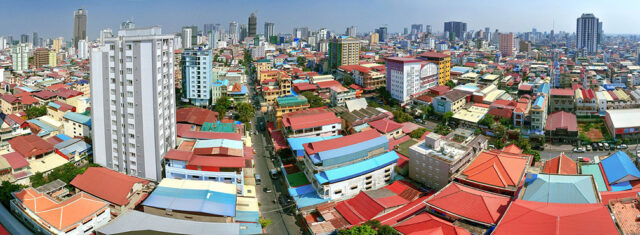
- Cambodia exports to Regional Comprehensive Economic Partnership peers grow 24% y-o-y to US$4B in the first half of 2023
- The Kingdom posted strong growth in exports just a year and a half since becoming part of RCEP
- It expects further growth in exports to RCEP members due to FTA’s preferential tariffs
Cambodia recorded a 24% year-on-year growth to US$4.07 billion in the value of goods it exported in the first half of 2023 to its 14 colleagues in the Regional Comprehensive Economic Partnership (RCEP), Cambodian media reported, citing Ministry of Commerce data.
That compares with the $3.28 billion worth of products that Cambodia exported to other RCEP members in the same period year ago, the reports said.
The Indochinese kingdom achieved the strong growth in its exports just a year and a half since it became part of RCEP in January 2022 after the National Assembly (Parliament) ratified the RCEP treaty in November 2021 and deposited the instrument of ratification with the ASEAN Secretariat.
Myanmar is the only ASEAN member that has not yet ratified the treaty. Another holdout, the Philippines, formally became part of the regional free trade agreement on June 2 this year after its bicameral Congress ratified the treaty on February 22 and deposited the instrument of ratification with the ASEAN Secretariat on April 3.
The Khmer Times said Cambodia’s top three export destinations were RCEP members with Vietnam taking up nearly $1.43 billion, a 22% increase; China accounting for $713 million, up 17%; and Japan importing $545 million, up 1%.
The significant export growth came just a year and a half after RCEP took effect in Cambodia on January 1, 2022.
RCEP, the world’s largest free trade agreement (FTA), was signed on November 15, 2020 by Association of Southeast Asian Nations member states Cambodia, Brunei, Indonesia, Laos, Malaysia, Myanmar, the Philippines, Singapore, Thailand and Vietnam.
Other signatories were Australia, China, Japan, South Korea and New Zealand. Today, only Myanmar has not implemented the agreement.
The Khmer Times quoted Cambodian Ministry of Commerce Secretary of State and Spokesman Penn Sovicheat as saying RCEP has been a major driving force for the country’s export growth in the post-COVID-19 pandemic era.
“The growth clearly shows that the RCEP countries are a potential market for made-in-Cambodia products,” he told Xinhua. “With preferential tariffs offered under the RCEP agreement, there’s no doubt that our export to the RCEP countries will continue to rise throughout the second half of this year and next years.”
Cambodia Chamber of Commerce vice-president Lim Heng praised the RCEP and Cambodia’s other trade agreements as “stepping stones” for the country’s economic development, and urged domestic actors to reap maximum benefits from these deals.
Nevertheless, he acknowledged that Cambodia faces difficulties as a result of the RCEP’s regional nature, particularly in terms of competition with other major agricultural exporters in the bloc, such as Vietnam and Thailand.
“The RCEP gives agricultural commodities preferential trade treatment – they’re important and indispensable. Therefore, rather than just exporting the agricultural raw materials that we have, we need to be able to process them,” Heng stressed.
RELATED READ: Japan, China lead RCEP winners; VN, PH, Indonesia face lower exports








